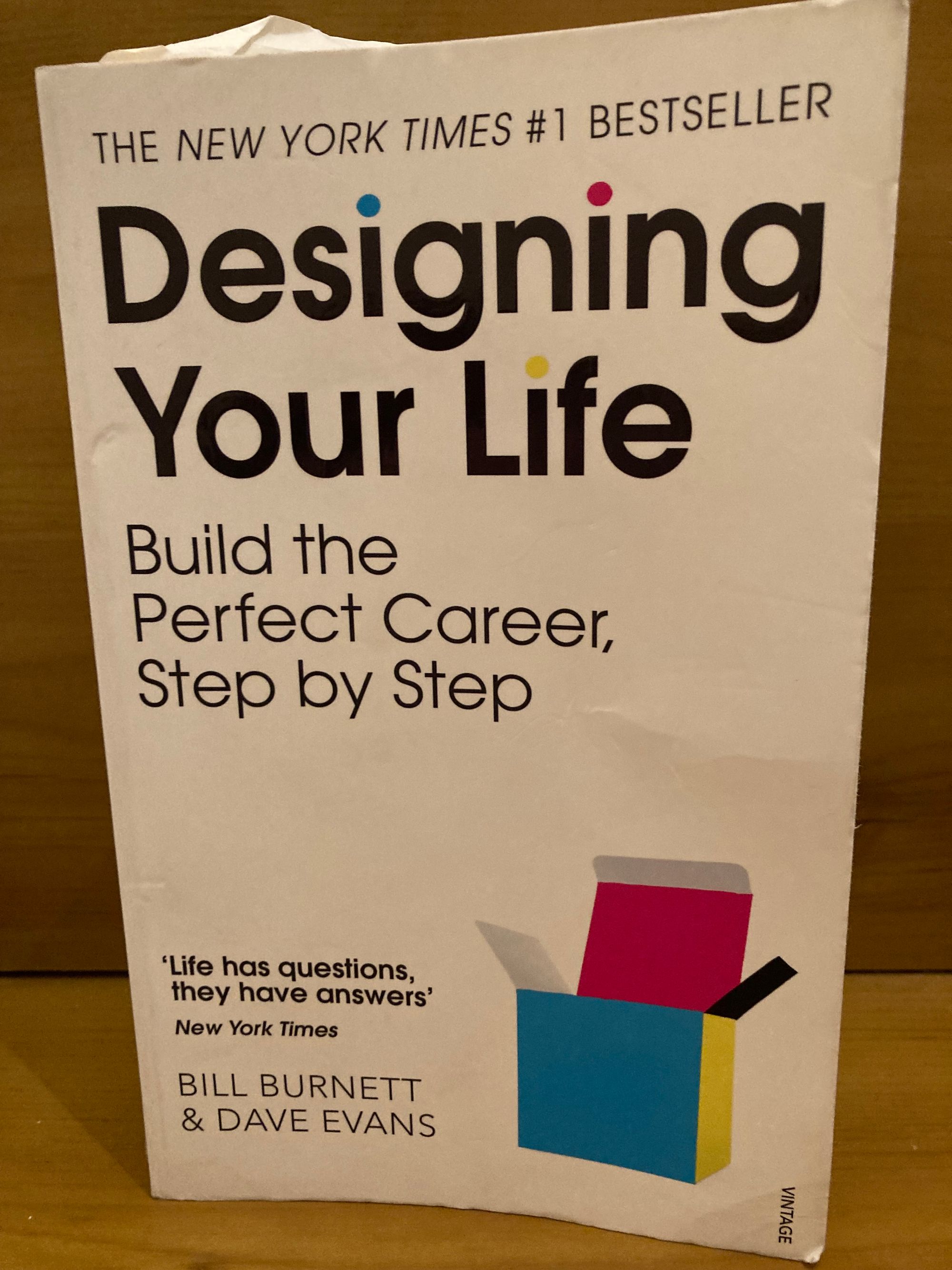Navigating Life: How a Lifeview and Workview Can Help You
A workview is your view of the role of work in your life and what meaningful work is. A lifeview is your values and what makes a good life.

Hello everyone,
In this post, we will explore the concepts of a beginner's mind and growth mindset and how they can be effective tools. I will tell you about their impact on my life. Further on we will explore what a workview and lifeview are, and how they shape our perspectives on our careers and personal lives. Join us on a journey of self-exploration as we delve into the importance of finding balance and aligning our values with our goals. Whether you're just starting out in your career or looking to make a change, this post will provide valuable insights and practical tips to help you navigate the journey ahead.
Beginner's Mind and Growth Mindset
I often talk about how I love to learn and am drawn to knowledge. For me, this is both a conscious and unconscious decision. I have always been curious and inquisitive. From learning about the physiology and anatomy of animals or the flags and capitals of different countries around the world, I was always drawn to knowledge. In part, it was that I have always had an easy time remembering those kinds of facts. I also had a beginner's mind, I was curious, wanted more knowledge, and did not have many preconceived notions.
The beginner's mind is a concept that can be traced back to Zen Buddhism and relates to keeping an open mind and not being too confident. This will both be helpful in fields where you know things and in new ventures. Embracing a beginner's mind can help you avoid being scared of looking dumb and instead focus on learning and processing new information.
One insight from this is that we often find things fun or enjoyable when we are good at them. This might lead you to the conclusion that if you do not like something you won't ever be good at it or you can choose to look at it from the inverse. If you want to like something more, practice it and get better. Most things become more enjoyable as you improve. Overcoming a challenge can be one of the most rewarding feelings too.
Growth Mindset
Growth mindset is another term that can be seen as related. Popularized by Carol Dweck it is a way of approaching life. Instead of viewing new and hard challenges as a bad part of life, viewing them as an opportunity to grow will set you up for success in life. The opposite of a growth mindset is a fixed mindset. The goal here is to look smart rather than to learn and grow. This often leads to a deterministic view of the world which assumes that life is already determined by the circumstances we have. This can make you feel powerless.
Unfortunately, our society often breeds this type of mindset. Think about grades in school, for instance, it is more important to achieve good grades and look smart than actually learning the subjects deeply. Anyone who has ever taken an exam can relate to the feeling of not remembering anything from the course two weeks after the exam and this is one of the problems with how education is set up. This does not teach you to overcome adversity either, instead, the focus is on being a high achiever and then one day most of us run into a wall. But we have not been given the tools to solve that problem. Instead, society has awarded us for having good grades all our lives, but we don't know what to do when we are facing real problems.
According to Dweck, people with a growth mindset instead are able to learn from challenges and improve. She says that a growth mindset is what separates those who are most successful from others, they handle adversity well. Instead of fearing looking stupid, they strive to always be learning and growing. This builds confidence in people and allows them to view those more successful as an inspiration and an opportunity to learn instead of as a threat.
If you want to learn more about the growth mindset here is a good recap of the book Mindset by Carol Dweck and here is her Ted Talk if you prefer a video
Creating Additional Time
For me, an additional benefit of embracing a beginner's mind and trying new things is that novelty makes time feel slower. Whenever I try something new or go somewhere I have never been I feel like I am able to experience so much more than in my daily routine at home. For example, I went on a trip to Italy this summer with my girlfriend. We were there for a week, but it felt like a month. We visited multiple towns, went on hikes, read books, ate great food, and had an overall great time.
That week created multiple detailed memories. It is easy for me to separate the memories and I remember them in detail. I can recall the feeling of getting off the train in Moneglia, walking down to the beach, me misreading the map and making us take a long detour, and then finally arriving at the hotel incredibly hot and ready to go down to the beach. After going to the beach, we then got lunch followed by a trek to the next town over, Deiva Marina, and accidentally ended up walking down a mountain bike trail constantly fearing that a bike was going to run us over. This was one day but feels like memories from multiple days looking back at it. The adventures and memories of that day are stored in more detail than most other days in everyday life.

If I were to compare that experience with the ten weeks I worked in an office this summer it would be very different. I would have a hard time discerning what happened on what day during the summer. Most days looked the same. I took my bike to the office, showered, and then worked for 8 hours before going home. Then I would either go train or meet up with some friends after work. This was the majority of time spent during the summer and I did not dislike it. In fact, I felt I had a pretty good summer and in many ways enjoyed the routine but in comparison, the time flew away. Routines are great in some manners but they can contribute to life flashing by, and I believe it is important to remember this.
The beginner's mindset can help with this. Asking for new assignments or challenges at work can be helpful. When I worked at a grocery store after high school I followed this advice and told my boss that if I was going to keep working for him I was going to need new assignments and more responsibility or I was going to find another job. This made my job a lot more enjoyable as I had the opportunity to keep developing at the job. An additional benefit for me was of course the fact that I increased my value to my boss as well which eventually would help me get a pay raise. Outside of work you can also try new things. Try a new hobby, cook a recipe you have never cooked, take a new way home from the office, or go for a walk in a part of town you have never been to. These are not hard things, but they will brighten your day and create some adventure in your life.
Reading
I am currently reading Designing Your Life by Bill Burnett and Dave Evans which is a book on the topic of life design. The book is based on a course they offer at Stanford's d.school. The goal of the book is to help you apply design thinking and use design principles to help you figure out your life. I had come across the book online a few times and then I was also taking a class in user-centered design innovation at Trinity College so I came in contact with design thinking. Since the book is based on a course there are a lot of practical exercises in the book. This makes it quite a slow read if you are actively doing the exercises which I definitely think you should be as that is where a lot of the benefits can be found. For this reason, I am thinking I will be sharing a few steps here and how I am approaching the book as I read it.
If you want an introduction to the concept in a video format instead here is a Ted Talk by Bill Burnett and my book summary here.

The authors conclude that their goal for our lives is coherency. What do they mean by this? Well, they believe you should easily be able to connect these three points:
- Who you are
- What you believe
- What you are doing
To establish this coherency they present the concepts of a workview and a lifeview which can be used as a compass when making decisions in life.
What are a workview and a lifeview?
A workview is your fundamental view of work. It describes the way you view the role of work in your life and what you believe makes it meaningful. A lifeview is instead your view on life. It describes what you value in life and what is important for you to live a good life. You have the opportunity to ponder large questions such as what is the meaning of life and other perspectives on life.
I believe most people are aware of what a lifeview is and maybe even have a good idea of what they believe theirs to be. Even if you do I think you have a good idea about your lifeview it is beneficial to actually write this down. The act of writing it down forces you to reflect further on what you think. The exercise in the book was to write 250 words each for the workview and lifeview. Afterward, you should compare them and reflect on which parts align or complement each other and then what differences there are and potentially conflicting views.
It makes perfect sense that these two views should be aligned, but for many, they are not. For me, it was insightful to consider both my workview and my lifeview and then see in what ways they were the same and in what ways they were different. This then enabled further introspection on whether something needed to change. One example is that I have recently thought about the importance of working with people you enjoy being around. Having good relationships and spending quality time with loved ones has always been an important part of my lifeview, but it did not have the same importance in the way I viewed work. But after some reflection, I realized that the people you work with are most likely going to be the people you spend the most time with possibly outside your family. You will have a hard time spending as much time with friends as you do with your colleagues at the office. This does not necessarily mean that this will dictate what jobs I apply for, but it will definitely be an important factor.
My Workview & Lifeview
I am not going to share all 500 words I wrote about this but just some highlights that I took out of the exercise. For me, this was a very valuable exercise and I am thoroughly enjoying reading the book and conducting the exercises.
Workview:
- I believe work is the process of creating value. This does not have to be monetary value, although this is commonly linked to it in today's society.
- I think humans were made to work in some manner.
- Work can play an important role in creating meaning in one's life. It should be a place for personal growth and learning.
- Good and worthwhile work means creating value while having a positive impact on yourself, other people, and/or society.
Lifeview:
- I think finding the meaning of life is hard. The closest I have gotten is that we should leave the next generation better off than the one we are part of while also enjoying life.
- I think it is important that we accept that our time on this earth is finite and we should enjoy the miracle that is the fact that we are sentient beings. I think a big part of this is challenging yourself, trying, and learning new things. Experiences are what makes life valuable.
- To be able to enjoy life to the fullest I think you need to share it with others. Relationships are incredibly important and sharing good moments with others will make them even better.
- Both negative and positive emotions are a part of the human experience. If you never felt bad you would not value the good times.
Final Takeaways
It can be hard to figure out what you want to do in life. The truth is your life will contain many lives in it. Just because you decide on one path does not mean you are not able to change direction. It is an important insight that life does not have "one best possible life" but instead contains multitudes of great lives and you have the opportunity to choose which path to continue on.
"You can't know what you want until you know what you might want, so you are going to have to generate a lot of ideas and possibilities"
-From "Designing Your Life" by Bill Burnett and Dave Evans
To figure out what you want in life you need to try different things and come up with ideas. One way of doing this is to embrace a beginner's mind and a growth mindset to help you try new experiences and find what you like doing. With your workview and lifeview you then have a framework to evaluate whether this aligns with your values and what you want in life.
I hope this insight into how I am tackling life and trying to design a good life was helpful. If you found this interesting and want to discuss it more I love to talk about this stuff so feel free to reach out. Until next week, have a great one!
